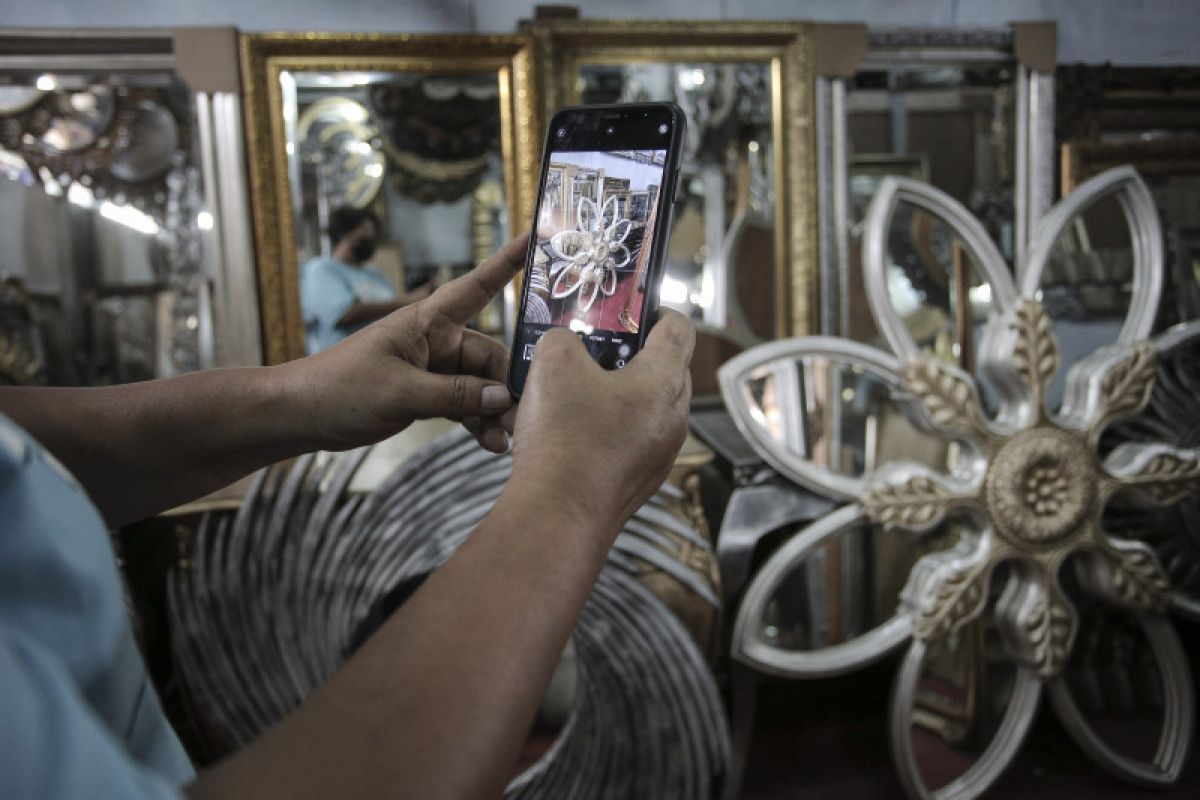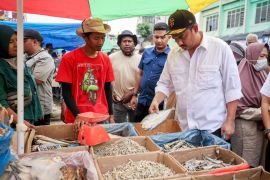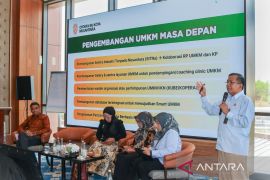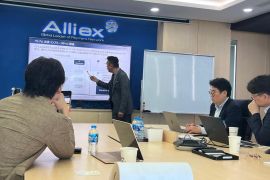The market is quite large since Indonesia has the maximum number of e-commerce users in Southeast Asia.
According to the Trade Ministry’s data, Indonesian e-commerce transactions had reached Rp266 trillion in 2020. Meanwhile, as of the second quarter of 2021, the figure had reached Rp186.8 trillion, an increase of 63.4 percent, from last year.
Meanwhile, the number of on-boarding micro, small, and medium enterprises (MSMEs) in the digital ecosystem had increased to 15.3 million, or 23.9 percent of the total MSMEs, amid the pandemic.
Deputy for small and micro enterprises (SMEs) at the Cooperatives and SMEs Ministry Hanung Harimba Rachman projects the growth to cross Rp400 trillion in 2021.
Rachman revealed that small businesses will face various challenges in future in terms of the unfair business competition, cyber security, digital literacy, as well as the information and communication technology industry, which continues to be dominated by imported products.
Hence, the Cooperatives and SMEs Ministry is striving to encourage MSMEs actors to enter the digital ecosystem by strengthening the capacity and competitiveness of micro, small, and medium enterprises cooperatives (KUMKM) through the provision of collaboration networks as well as free business incubation and e-learning platforms, Rachman stated.
The ministry is also preparing SMESCO -- a brand of the ministry’s Cooperatives and SMEs Marketing Service Agency -- as a Center of Excellence for SMEs by providing an exploration and research laboratory for future small enterprises at SMESCO Labo, product curations at Sparc Trade, export assistance at BNI Xpora, business fostering companions at Sparc Campus, and collaboration with various MSME companion associations, he noted.
In addition, SMESCO is providing logistics support innovations through fulfillment centers (consolidation of the logistics processing of MSMEs products), factory sharing, cloud kitchens, as well as SMESCO’s drop-shipping business platform Siren.id, he remarked.
Meanwhile, SMESCO Indonesia's president director, Leonard Theosabrata, stated that it had mapped the growth of various digital platforms comprising e-commerce, ride hailing, and digital payments in Indonesia.
Those platforms have helped Indonesia become a country with the largest and fastest digital economy in the ASEAN in the past two years, he added.
Furthermore, SMESCO has fulfilled the five pillars of the microeconomic recovery acceleration approach through digital platforms that manage to reach customers, suppliers, back offices, data analytics, and logistics support, he noted.
30 million MSMEs
The government will persuade more than the targeted 30 million Micro, Small, and Medium Enterprises (MSMEs) to join digital trade by 2023, Trade Minister Muhammad Lutfi stated.
"On account of the positive developments, we are optimistic that the government's target to encourage onboarding of 30 million MSMEs to digital platforms by the end of 2023 will be achieved," the minister stated.
Lutfi expects this to drive performance of the trade sector and facilitate the recovery of the national economy.
In the second quarter of 2021, the national economy recorded a growth of 7.07 percent from the corresponding period last year. Meanwhile, the trade sector recorded a growth of up to 9.44 percent.
E-commerce transactions during the first semester of 2021 also grew significantly by 63.4 percent, with a transaction value of Rp186.7 trillion (almost US$13 billion), and it was estimated to reach at least Rp395 trillion (over US$27 billion) by the end of 2021.
Lutfi stated that until mid-August of 2021, over 15 million, or 22 percent, of the total MSMEs nationwide had joined the digital trade.
Of the 15 million MSMEs, more than seven million MSMEs are the result of onboarding during the Gernas BBI campaign launched in May 2020, Lutfi stated.
He opined that Indonesia, as one of the largest countries globally, had the potential to become a key player in the world's digital economy.
Indonesia's digital economy in 2020 was valued at Rp632 trillion (almost US$44 billion) and is projected to grow eight folds by 2030 to reach up to Rp4,531 trillion (around US$314 trillion).
This can be achieved if we optimize the development of equitable telecommunications infrastructure and competent human resources as well as through comprehensive regulatory support, he remarked.
According to Lutfi, MSMEs should conduct collaboration and innovation as the main keys to accelerate digital transformation.
Related news: Synergy key to adapt to digital era, pandemic: Trade Ministry
Collaboration is deemed necessary between all stakeholders -- the government, private sector, associations, and banks -- in order to succeed in creating strong, capable, and competitive national MSMEs in the global market.
The second key is innovation. National MSMEs must continue to adapt to advancements in digital technology.
The minister believes that Indonesian MSMEs can grow and contribute to the national economy if these two keys were applied, complete with support in the form of sound regulations, training, comprehensive digital transformation development, and inclusive financing.
While Indonesia has one of the fastest growing digital economies in Southeast Asia, action is needed to ensure that all Indonesians, especially the most vulnerable, can access various digital technologies and services and realize the benefits, according to a new World Bank report "Beyond Unicorns: Harnessing Digital Technologies for Inclusion in Indonesia".
Related news: Ministry selects partners for school procurement information system
Although the accelerated adoption of internet-enabled services during the pandemic is likely to boost the growth of the digital economy, the benefits of such development could be unequal, World Bank Country Director for Indonesia and Timor-Leste Satu Kahkonen pointed out.
Kahkonen highlighted the criticality of helping citizens develop the required skills to maximize digital opportunities, especially for better jobs.
At the same time, it is equally important for the government to address challenges related to regulations and the business environment to enable firms to innovate and compete effectively, she stated.
Related news: International economic agreements to help expand MSMEs export market
For Indonesia to leverage digital technologies for greater inclusion, the new report emphasizes three policy priorities.
The first is to boost digital connectivity and universalize access to high-quality internet through efforts, such as improving clarity of regulations around the sharing of telecom infrastructure.
The second priority is to ensure that the digital economy works for all. This can be supported by better logistics and greater investment in relevant skills for the digital era.
The third priority is using digital technologies to provide better public services, improve the quality of citizen-and-state interactions, and build trust in the digital world.
Related news: BI pushes digital finance development
Related news: Jakarta has supporting capital to continue economic recovery trend: BI
Editor: Fardah Assegaf
Copyright © ANTARA 2021












